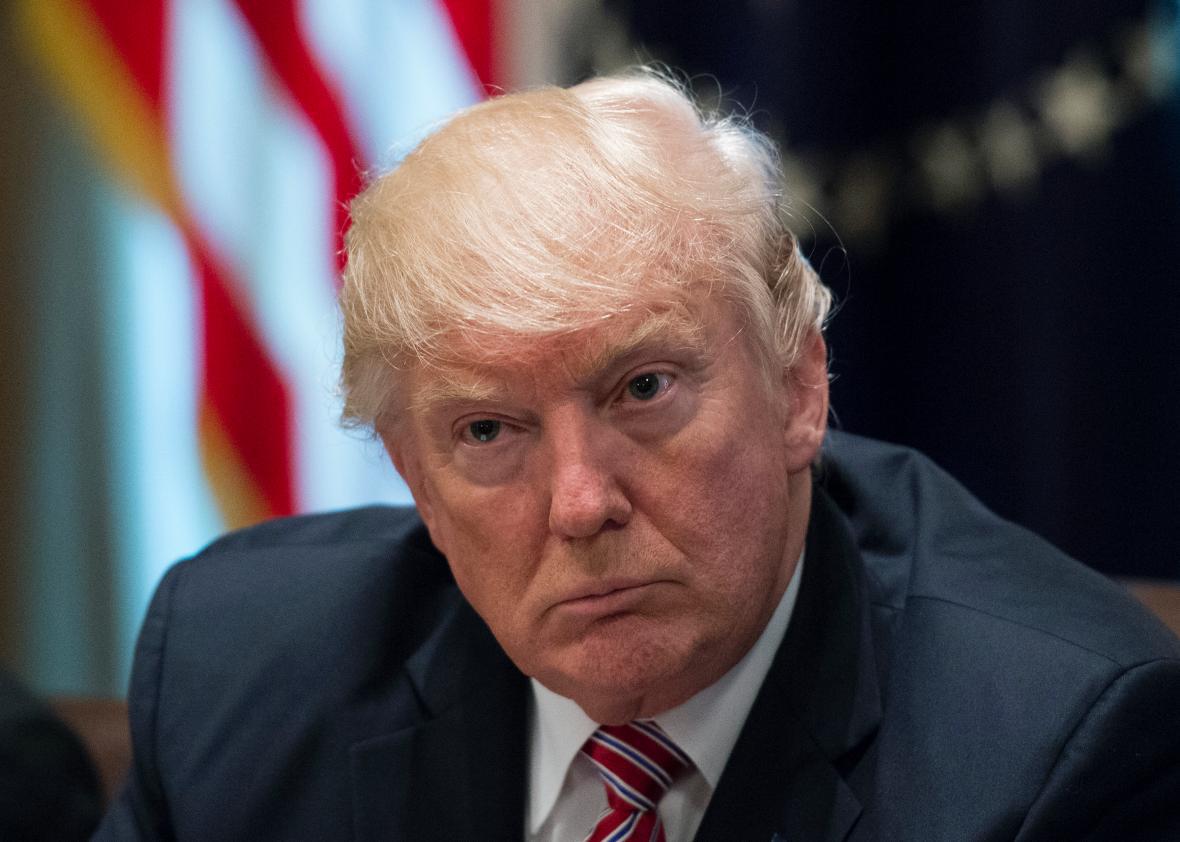The rollout of Donald Trump’s second travel ban is already poised to cause chaos.
On Wednesday night, the State Department sent a cable to American embassies and consulates laying out guidelines for the implementation of the executive order. The cable purported to interpret a Supreme Court decision holding that foreign nationals who have “a credible claim of a bona fide relationship with a person or entity in the United States” must be exempted from the ban. All other citizens of the six Muslim-majority countries listed in the executive order will be barred from entering the United States for 90 days, and the refugee resettlement program will be suspended for 120 days. The order takes effect at 8 p.m. EDT on Thursday.
According to the State Department, this “bona fide relationship” rule encompasses parents, parents-in-law, spouses, children, adult children, sons- and daughters-in law, and siblings (whole or half). It does not include “grandparents, grandchildren, aunts, uncles, nieces, nephews, cousins, brothers-in-laws and sisters-in-law, fiancés and any other ‘extended’ family members.”
In interpreting “bona fide relationship” so narrowly, the Trump administration is capitalizing on an ambiguity in the Supreme Court’s decision. The justices declared that foreign nationals with a “close familial relationship” in the U.S. were exempted from the ban—but did not explain who, exactly, fell into its newly minted exemption.
Even in light of this minimal guidance, the State Department’s rules seem to be unduly stringent. The Supreme Court clarified that “a foreign national who wishes to enter the United States to live with or visit … [his] mother-in-law … clearly has such a relationship.” (Emphasis mine.) As civil rights attorney Amir Ali points out, it is difficult to believe that a mother-in-law “clearly” qualifies as a “close familial relationship” while a grandparent or cousin does not. Under the Trump administration’s guidelines, a foreign national must be exempted from the ban if she wishes to visit her estranged half-sister—but not if she wants to see a grandparent who raised her. This arbitrary line-drawing will almost certainly spur a new round of court challenges.
Equally troubling is the Trump administration’s effort to conceal information about the execution of the ban. The State Department did not publicly release its new rules and refuses to comment on them, describing the cable as “internal Department communications.” Thus, the administration has not yet announced to the public that the order will take effect in a matter of hours. As BuzzFeed’s Chris Geidner has noted, this rush to implement the order with maximum secrecy suggests that the Trump administration is avoiding pre-enforcement litigation, delaying lawsuits until the ban takes effect. This strategy reduces the probability that a court will force the government to broaden its exemptions before it can even begin enforcing the order.*
Once again, it is Groundhog Day in travel town. The liberty of thousands is at stake. And as of Thursday morning, the Trump administration is doing everything it can to maximize the mayhem, confusion, and civil rights abuse that will result from the implementation of this needlessly cruel policy.
*Correction, June 29, 2017: This post originally stated that Customs and Border Protection officers might once again detain and deport individuals targeted by the ban. The State Department’s implementation instructions should prevent CBP from deporting current visa-holders.
*Update, June 29, 2017: This post has been updated with additional analysis about the secrecy and speed of the guidance.
